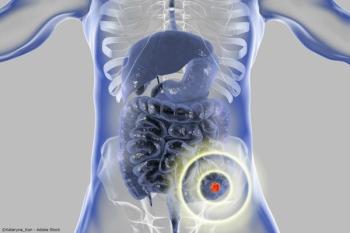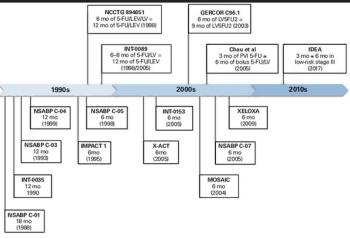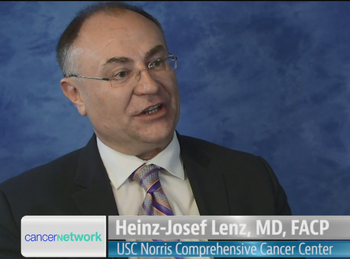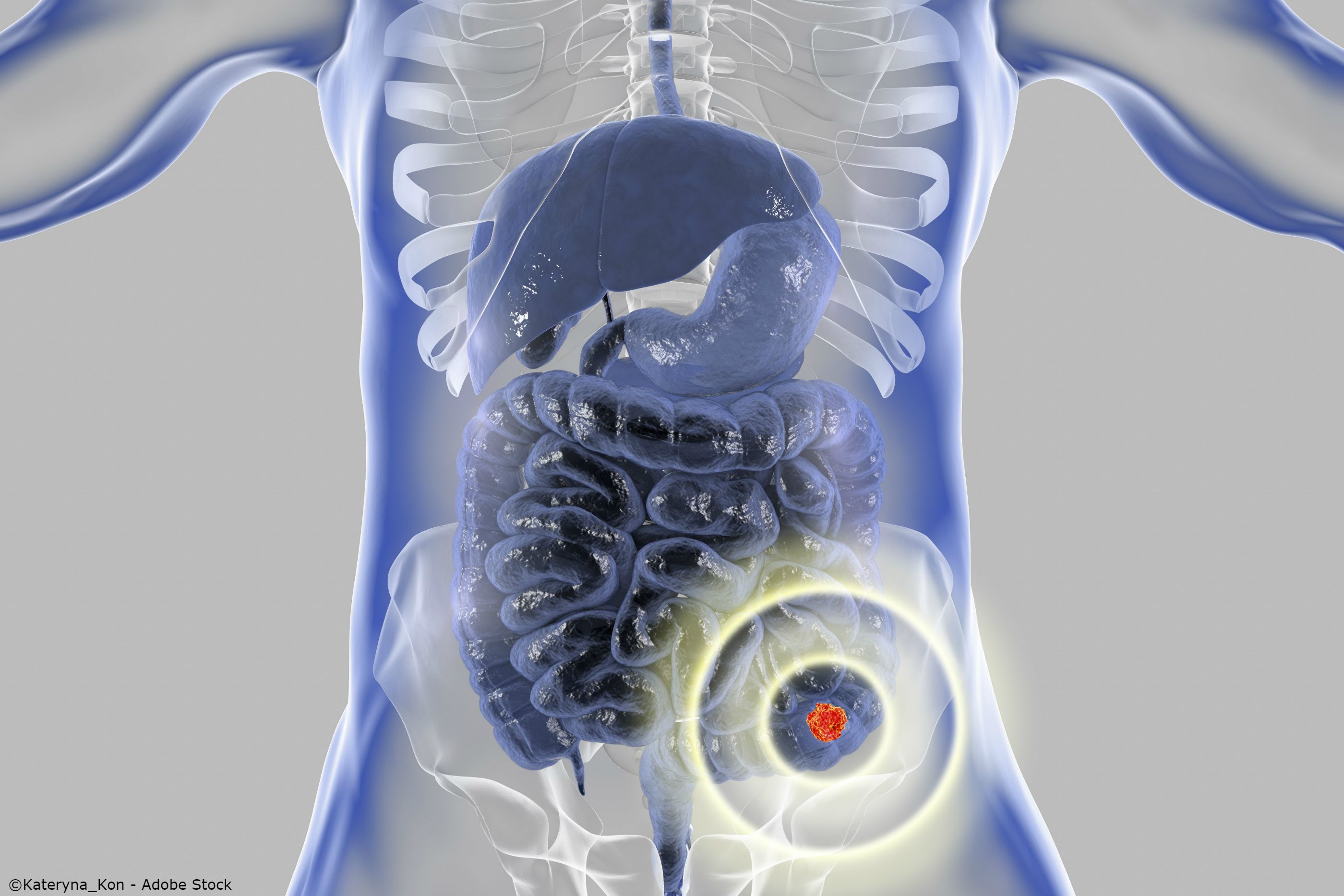
Colorectal Cancer
Latest News
Latest Videos

CME Content
More News

Dr. Luis Diaz spoke with Cancer Network about monitoring for residual disease in colon cancer ahead of his presentation at ESMO 2018.

Until recent studies were reported, immunotherapy was thought to be ineffective for colorectal cancer; this article provides guidance on how to incorporate immunotherapy into this setting.

A study of an equal-access military health system shows universal health insurance for both the military and civilian populations could improve CRC screening rates.

A study shows ZEB2 has clinical potential and may improve TNM risk-stratification and guide treatment in colorectal cancer.

In this article, we review the findings of the IDEA study and discuss the optimal duration of oxaliplatin-based adjuvant chemotherapy using patient-based risk factors.

A study finds tailored phone intervention significantly increases colorectal cancer screening compared to usual care.

It may be possible to predict personalized tumor progression in CRC patient's liquid biopsy and mathematical modeling.

Patients treated with anti–PD-1 or anti–PD-L1 inhibitors in clinical trials were successfully retreated with the inhibitors after discontinuing the treatment.

The survival advantages associated with NCCN guideline–driven care were not realized in younger patients with stage II and stage III rectal cancer.

The most common presentation among the younger patients was bleeding, and they were more likely have a family history of rectal cancer.

In an interview with Cancer Network, Lorraine Drapek describes a multidisciplinary program at MGH to support vaginal and sexual health post RT for GI and gynecologic malignancies.

Canadian Cancer Trials Group investigators say it's unclear if disease biology is different in younger patients or if older ones are more likely to undergo screening.

Early‐onset rectal cancer may differ biologically and in its response to multimodality therapy, according to a large retrospective study of NCCN data.

An Australian team is studying a DNA-based vaccine that the lead investigator feels could be “transformative” in the care of advanced colorectal cancer.

A 13% absolute increase in the radiographic response rate occurred in regorafenib-treated patients. Survival increases were not statistically significant.

For each 25 nmol/L increment of circulating vitamin D, colorectal cancer risk was 19% lower in women and 7% lower in men.

In this video, Dr. Heinz-Josef Lenz outlines the many advantages that development of liquid biopsy is affording cancer patients.

In the ADORE trial, adjuvant FOLFOX in postoperative yp stage III rectal cancer significantly improved disease-free survival.

A combination of irinotecan, cetuximab, and ramucirumab may boost PFS in advanced CRC, when given after failure of oxaliplatin-and-bevacizumab–based therapy.

Overall, patients with mCRC and isolated peritoneal carcinomatosis did not benefit when hyperthermic intraperitoneal chemotherapy was added to surgery.

The presence of MSI-high was predictive of Lynch syndrome, which was found to be associated with a much wider spectrum of cancers than previously thought.

Despite paying nearly double per month for first-line treatment in the US, patients with mCRC have survival outcomes similar to their Canadian counterparts.

MSKCC’s Dr. Nancy Kemeny discusses the impact of a company's decision to halt manufacture of a pump used to treat liver mets from colon and rectal cancers.

In this Q&A, we discuss the research into the relationships between gut microbiota, diet, and colorectal cancer.

A retrospective study shows 30 patients need to be treated with adjuvant therapy to prevent 1 death at 3 years.






































